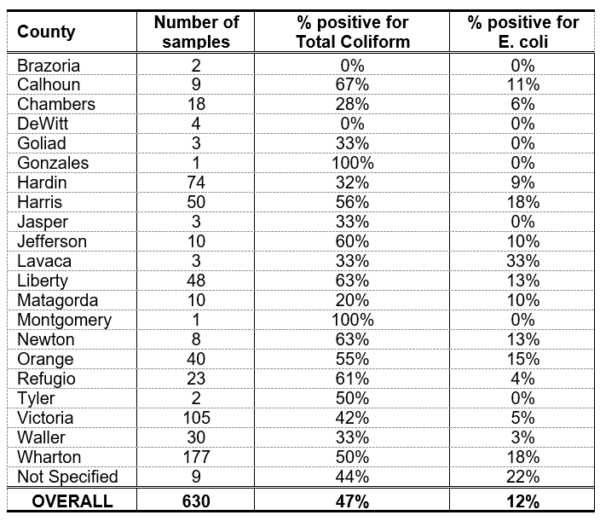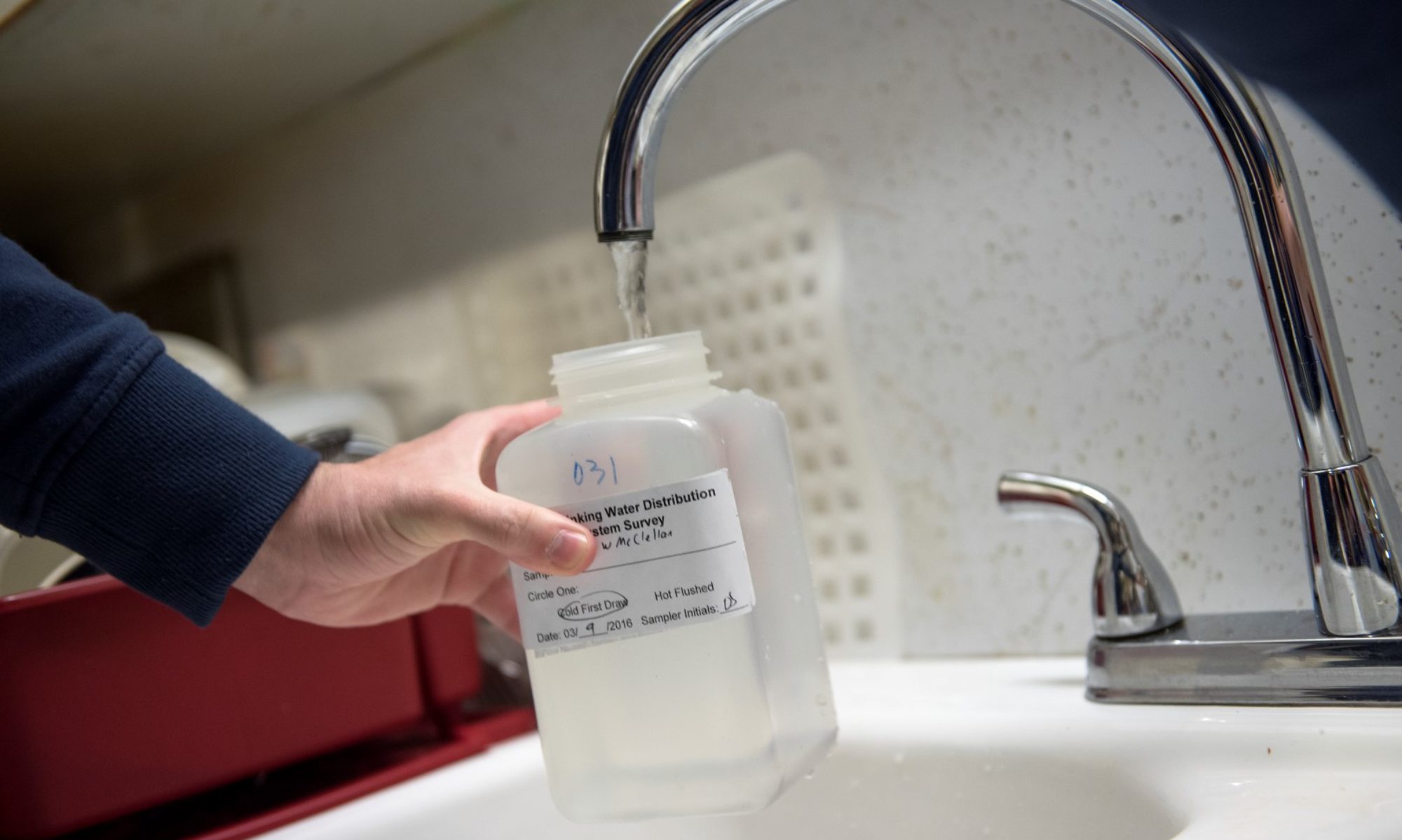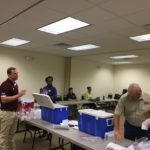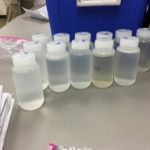Preliminary results from well water testing after Hurricane Harvey
Since September 12, 2017, Virginia Tech and Texas A&M’s AgriLife Extension have been coordinating citizen science sampling efforts in flood-impacted counties in Texas through the Texas Well Owner Network. Our team has distributed 1200 sampling kits, which contained one sterile bottle, sampling instructions, and a well owner survey. We hosted 11 free, confidential well water testing opportunities that were promoted through the AgriLife Extension network. To date, our team has analyzed 630 well water samples from 21 counties in Texas.
Photos of Texas Extension overseeing kit distribution, collection, shipping and communicating with the public (Courtesy: TWON):
The preliminary county-level data provided below describe all the well water samples our team has analyzed from Texas to date. It is important to emphasize that these samples are from flooded drinking water wells, non-flooded drinking water wells, and non-drinking water wells (e.g., used for livestock) collected over a 6-week period. Using the well owner survey, we will identify and evaluate all flooded drinking/domestic water wells in the coming weeks as we are currently entering survey data. This effort is being led by Gregory House, an undergraduate researcher studying Civil Engineering at Virginia Tech. Therefore, when reviewing our preliminary data, please keep in mind that rates of bacteria associated with the flooding may be higher or lower than reported here.
47% of wells tested positive for total coliform bacteria, with incidence ranging from 20-63% for counties with 10+ samples collected. Total coliform bacteria is a group of bacteria that commonly live in soil and surface water (e.g., floodwater). The presence of total coliform bacteria sometimes indicates that the well water is contaminated, but not all total coliform bacteria cause disease. While AgriLife Extension recommends that well users disinfect wells that test positive for total coliform as a precaution, it is recognized that total coliform positive results are sometimes due to the presence of these bacteria on the tap sampled and not necessarily in the water, or due to improper handling of samples (i.e., accidentally contaminating samples).
12% of wells tested positive for Escherichia coli (E. coli) bacteria, with incidence ranging from 3-18% for counties with 10+ samples collected. E. coli is a specific type of total coliform bacteria that is a more accurate indicator of bacterial water contamination and potential to cause disease. The presence of E. coli in water indicates contamination with human or animal waste. AgriLife Extension recommend that well users do not drink their well water that tests positive for E. coli bacteria until the system has been disinfected and a re-test of the well water no longer indicates the presence of E. coli.
After a flood, the water in your well may be contaminated. Ingesting or being exposed to contaminated water may cause sickness. Free, confidential well water testing opportunities are being offered by AgriLife Extension. Please visit TWON.TAMU.edu for more information.

Updated: October 25, 2017




